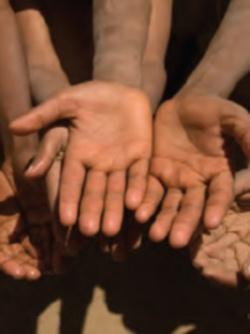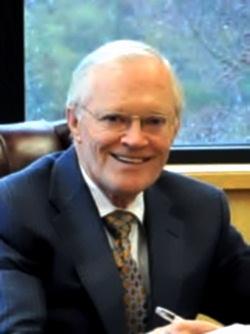Nkosi Sikelel' iAfrica
God has a plan for all mankind, and every nation found in earth's history is subject to His guidance and direction. The nations of Africa are no exception, despite its troubles and trials.
I was in South Africa earlier this year, on the day of their national elections. The outcome was a certainty—the African National Congress (ANC) would be re-elected with a clear majority. Yet many outside South Africa do not realize that the ANC has changed quite a bit since it took power in the "rainbow nation," under Nelson Mandela, in 1994.
Back then, the Zulu people—under the banner of the Inkhata Freedom Party (IFP)—offered a real alternative. In this year's election, however, Jacob Zuma—a Zulu leader widely loved despite corruption and rape charges, recently withdrawn—was at the helm of the ANC and assured the party's victory.
Many People as One
Unique among national emblems, South Africa's post-1994 flag bears six colours—black, white, gold, green, blue and red-orange. Its diverse shades are said to represent the colours of the people who settled this rich land at the farthest south latitude of the great continent.
Many who only know the nation's modern history do not realize that the first settlers in the Cape Colony, working for the Dutch-East India Company, saw practically no black Africans for nearly 200 years. Aside from some early skirmishes, the Dutch lived a peaceful life in their new homeland. They would come to have far more trouble with the British than with the Bantu.
To an impartial outside observer, it seems as if each of the three main players in South Africa's modern history has "had its day in the sun." British, Afrikaners and indigenous Africans have each worn the mantle of rule.
It is not hard to understand that God has been watching to see how these peoples handle power—and, in particular, how they treat their fellow South Africans. Ultimately it is He who sets the times and boundaries of nations' rule (Acts 17:26). It is by His will that kings reign or fall (Proverbs 8:15–16). What lessons can we learn from the history of this beautiful yet often-troubled land?
In the years after Jan van Riebeeck arrived in South Africa in 1652, many Dutch—and later the French Huguenots—brought their farming techniques, cattle, sheep and grapevines to their new home. These early settlers were a religious people who deeply believed that God had given them their new country (To learn more about God's hand in the history of the modern descendants of ancient Israel, please request our booklet, The United States and Great Britain in Prophecy.)
At the same time, to the east, Bantu tribes—including the Zulus—were migrating down from Zimbabwe into the present area of Kwa Zulu Natal. Zulu leader Shaka, thanks to his superior military prowess, expanded his empire into other tribal lands after driving Zulu neighbours into submission.
In 1795, the British annexed the Cape for the British Crown. The Dutch "Boers" (boer is Dutch for "farmer") could not tolerate the British presence; when in 1833 the British Empire declared freedom for all slaves, Boer "Trekkers" moved eastward into the area of the Orange Free State, where they clashed with Shaka's brother Dengane. After Zulu warriors murdered Boer leader Piet Retief and his party, the "Voortrekkers" promised their God that they would remember Him with an annual Covenant Day if He would give them victory. Yet, no sooner than victorious Boers had settled their new land, British settlers tried to dominate them, seeking gold and diamonds. The Anglo-Boer War (1899–1902) ensued, leading to great sorrow for Boers who saw their farms destroyed and their families persecuted and incarcerated. Many died of disease, and some Afrikaners to this day still harbour animosity toward the British.
British domination did not last; the Afrikaners had the next turn to hold power. Under Prime Minister D.F. Malan, a vocal champion of Afrikaner nationalism, the National Party came to power in 1948 and expanded South Africa's prior segregationist policy into what became known as "apartheid." Non-white South Africans were subjected to strict separation in all areas of life. By the 1970s and '80s, international condemnation of these policies had led to United Nations sanctions, which ultimately caused Prime Minister F.W. de Clerk in 1990 to bring an end to apartheid and to call for elections for all South Africans.
Many white South Africans feared a backlash of vengeance for the years of apartheid, so there was much surprise when Nelson Mandela instituted a Truth and Reconciliation Commission, with the stated goal of encouraging old foes to work through the hatreds of the past. This mandated process of self-examination helped foster a relatively peaceful transition to majority rule in South Africa, and the nation in 1994 rejoined the Commonwealth of Nations after more than 30 years of isolation.
Since then, South Africa has faced serious problems. Nearly a million skilled white South Africans have departed for other English-speaking countries, a trend hastened by government policies awarding many senior and responsible positions on the basis of race—a sort of reverse of the racial policies that in previous years had been used to favour whites. Will these policies lead to a more harmonious and successful society for all? Remember, God is watching, as He did the British and Afrikaners before.
But it could have been worse. Unlike Zimbabwe, its neighbour to the north, South Africa has for the most part moved forward cautiously, aware that in order to secure prosperity for black South Africans, there must be room for all South Africans to exercise their productive expertise, and to work with overseas companies. To this day, Afrikaner and British farmers, winegrowers and self-employed businessmen help keep South Africa going, alongside their black countrymen.
The growing European Union is watching South Africa. Germany in particular is concerned about the nation's strategic metal deposits. Thirty percent of the world's titanium reserves are in South Africa. Even as Britain and America fall into increasing economic decline, how long will it be until the European nations—with which South Africa has long had an affinity—decide to step in more aggressively to compete with the increasing prominence of China on the African continent?
Nkosi Sikelel' iAfrica
Soon after a new flag came a new national anthem. Where once South Africa held on to two competing anthems—one in Xhosa, one in Dutch—its peoples now share one. This country with a flag of six colours now has a national anthem with portions in each of five languages—Xhosa, Zulu, Sesotho, Afrikaans and English. It begins with words from the 19th century Xhosa hymn, Nkosi Sikelel' iAfrica ("Lord, Bless Africa"), and ends with these poignant words in English:
"Lord, we ask you to protect our nation.
Intervene and end all conflicts.
Let it be so, forever and ever."
What does the future hold for South Africa? Its people have known hardships that few in the English-speaking world have yet had to experience. They have seen the failure of one human government after another. More than most in the prosperous West, they can cry out with real feeling to God, "Thy Kingdom come" (Matthew 6:10). Yet, despite the nation's troubled history, a glorious future awaits South Africans of every colour and background—and all the peoples of the world—when Jesus Christ returns. To learn more about that wonderful future, please request your free copy of our booklet, The World Ahead: What Will It Be Like?






